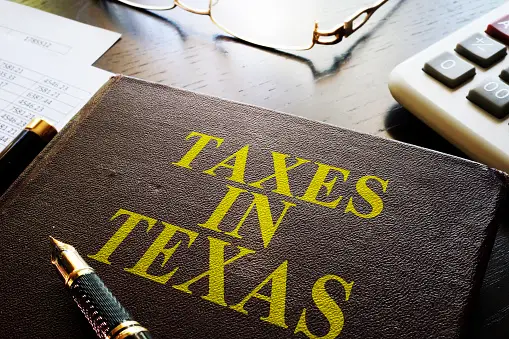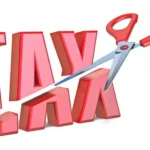Have you ever found yourself navigating the labyrinth of tax laws, especially in the Lone Star State? As we venture into the world of tax protesting in Texas, it’s not just about numbers and forms – it’s a journey where citizens question, challenge, and sometimes stand their ground against the ever-evolving tax landscape. Join us as we unravel the complexities, explore the motivations, and shed light on the importance of tax protesting in the heart of Texas.
Taxes In Texas
Navigating the complex and expansive realm of taxes in the Lone Star State is a journey that requires more than just a sturdy cowboy hat; it demands a thorough understanding of the intricate fiscal terrain that defines Texas. From the sprawling plains to the bustling cities, the Texan tax landscape is as diverse as the state itself, encompassing a multitude of taxes, exemptions, and regulations that shape the financial landscape for individuals and businesses alike.

The Texan Tax Tapestry
1. Property Tax Prowess:
In the vast expanse of Texas, property taxes stand as towering sentinels of fiscal responsibility. The adage “everything’s bigger in Texas” certainly holds true for property tax bills, as homeowners, ranchers, and business proprietors find themselves navigating the ebb and flow of property assessments that can fluctuate with the whims of the ever-changing real estate market.
2. Absence of State Income Tax:
Texas proudly stands as one of the seven states without a state income tax. While this absence can be music to the ears of residents reveling in their take-home pay, it also means that other revenue streams, such as sales and property taxes, bear the weight of funding the state’s coffers.
3. Sales Tax Symphony:
The sales tax in Texas is akin to a carefully orchestrated symphony, with various rates and exemptions creating a melodious interplay across different goods and services. Understanding the nuances of what’s taxable and what’s not becomes not just advisable but crucial for both consumers and businesses.
Unraveling the Tax Threads
1. Business Tax Choreography:
Understanding the intricate dance of business taxes is paramount for entrepreneurs looking to set up shop in Texas. From navigating the nuances of franchise tax to securing a Texas sales tax permit, the path to business success in the state is intricately woven with considerations for various tax obligations.
2. Homestead Exemptions:
Texans who proudly call their house a home can benefit from homestead exemptions, providing a welcome respite from the relentless surge of property taxes. Unraveling the eligibility criteria and navigating the application process for these exemptions can prove to be a valuable tool in a homeowner’s financial toolkit.
3. Tax Credits and Incentives Exploration:
Texas doesn’t shy away from offering tax incentives to foster economic growth. From research and development credits to incentives for green initiatives, businesses and individuals can explore avenues to meet their financial goals and contribute to the broader economic landscape.
Navigating the Tax Frontier
1. School Funding Conundrum:
While the property tax system plays a pivotal role in funding education in Texas, it has also sparked debates and legal battles over the equitable distribution of school funding. Striking the delicate balance between funding quality education and alleviating the tax burden on property owners remains an ongoing challenge.
2. Rising Appraisal Woes:
As property values soar in certain regions, homeowners find themselves caught in the crossfire of rising appraisals, leading to higher property tax bills. This phenomenon has spurred discussions on reforming the appraisal process to ensure fairness, transparency, and a more accurate reflection of property values.
Challenges and Controversies
1. Local Tax Dynamics:
Beyond state-level taxes, the dynamics of local taxes add another layer of complexity to the Texan tax landscape. Municipalities and counties have the authority to impose additional taxes, creating a patchwork of regulations that individuals and businesses must navigate.
2. Evolving Tax Legislation:

The Texan tax code is not static. It evolves, responding to economic shifts and legislative decisions. Staying abreast of these changes is crucial for taxpayers, as an oversight can have far-reaching consequences on their financial plans.
The Importance Of Taxes In Texas
Navigating the intricate landscape of Texas’s financial ecosystem, one cannot escape the undeniable role played by taxes—a fundamental cornerstone shaping the economic and social fabric of the Lone Star State.
The Funding Lifeline:
Taxes in Texas are more than just fiscal transactions; they are the lifeblood of public services. From maintaining highways that stretch across vast expanses to supporting education initiatives that mold young minds, the revenue generated from taxes forms the financial backbone of the state. In a state known for its independent spirit, the collective responsibility reflected in tax contributions is what enables the provision of essential services that benefit all Texans.
Education and Future Generations:
A significant portion of tax revenue in Texas is earmarked for education. The state’s commitment to nurturing the minds of future generations is exemplified by the allocation of funds to schools, colleges, and universities. This financial support is not just an investment in education but a pledge to empower the youth with knowledge and skills, laying the groundwork for a prosperous future.
Infrastructure Development:
The vast expanse of Texas demands robust infrastructure, and taxes play a pivotal role in building and maintaining it. From bustling urban centers to rural communities, tax dollars are channeled into constructing and upgrading roads, bridges, and other critical infrastructure. This facilitates smoother daily life and fosters economic growth by connecting regions and enabling efficient transportation of goods and services.
Social Services and Healthcare:
Texans benefit from an array of social services funded through taxes, ensuring the well-being of the community. The financial contributions of individuals and businesses sustain healthcare programs, social assistance initiatives, and support for vulnerable populations. Taxes thus become a mechanism for collective care and a means to create a safety net for those in need.
Economic Stimulus and Business Environment:

Taxes wield a profound influence on the economic landscape of Texas. The state’s business-friendly environment, characterized by relatively low taxes, attracts enterprises, fostering job creation and economic growth. The delicate balance of providing essential services while maintaining a competitive tax structure is a testament to Texas’s commitment to its residents and economic prosperity.
Environmental Stewardship:
In the vast expanses of Texas, preserving the environment is paramount. Tax dollars are directed toward conservation, sustainable development, and environmental protection initiatives. This commitment reflects an understanding the importance of safeguarding natural resources for current and future generations.
In essence, the importance of taxes in Texas transcends the mere financial transactions on tax returns. It is a dynamic interplay of fiscal responsibility, social commitment, and economic strategy. As Texans contribute their share to the state’s coffers, they actively participate in shaping the present and future of this iconic state, embodying the spirit of shared responsibility that defines the Texas way of life.
What Is Tax Protesting?
Delving into the intricate realm of tax protesting unveils a landscape where legal nuances, civic duty, and individual beliefs intersect. Tax protesting, at its core, is a multifaceted phenomenon encompassing various forms of dissent against the levying and collection of taxes by government authorities. It is not merely an act of financial rebellion but often a manifestation of political, ethical, or philosophical convictions.
Historical Roots:
One must trace its historical roots to comprehend the evolution of tax protesting. From the Boston Tea Party in 1773 to modern-day movements, the act of challenging taxation has been woven into the fabric of societies grappling with issues of representation and fiscal responsibility.
Motivations and Perspectives:
Tax protesters can emerge from diverse motivations. Some view taxes as a necessary evil, supporting essential public services, while others perceive them as an infringement on individual freedoms. Ideological perspectives vary, ranging from libertarian ideals advocating minimal government intervention to social justice concerns questioning the equitable distribution of tax burdens.
Forms of Protest:

Tax protests take on myriad forms, from peaceful advocacy and legal challenges to more extreme measures that may involve tax evasion or civil disobedience. Some individuals engage in strategic withholding, refusing to pay a portion of their taxes as a form of protest. Others may challenge specific tax laws through legal avenues, arguing their constitutionality.
Legal Ramifications:
While tax protesting is an expression of dissent, it’s crucial to understand its legal ramifications. Engaging in illegal activities, such as tax evasion, can lead to severe consequences, including fines and imprisonment. Courts typically distinguish between legitimate challenges to tax laws and unlawful attempts to evade payment.
Controversies and Debates:
Controversies and debates mark the landscape of tax protesting. Critics argue that such dissent undermines the functioning of essential public services, while proponents assert that it serves as a vital check on government overreach. The debate extends beyond legalities, intertwining with broader discussions about the role of government, fiscal policies, and the social contract.
Contemporary Movements:
In the contemporary context, various movements and groups engage in tax protesting for different reasons. These may include anti-tax activists, cryptocurrency enthusiasts challenging traditional fiscal systems, or those advocating for tax reforms to address perceived injustices.
The Intersection of Ethics and Law:
Navigating the ethical terrain of tax protesting involves a delicate balance. While individuals have the right to voice dissent, they must also recognize the societal contract that underpins the funding of communal services. Understanding the interplay between ethical convictions and legal responsibilities is pivotal in shaping effective and responsible protest strategies.
Top Strategies for Effectively Protesting Taxes In Texas
Navigating the labyrinthine landscape of tax protests in the Lone Star State demands a strategic approach that goes beyond mere dissent—it calls for a well-crafted game plan. Texans, known for their resilience and independence, have devised various strategies to challenge and navigate the intricate tax system. From understanding the nuances of property valuations to harnessing the power of community advocacy, let’s embark on a comprehensive journey through the top strategies for effectively protesting taxes in Texas.
1. Mastering Property Valuation Knowledge:
One of the cornerstone strategies for a successful tax protest is a deep understanding of how property valuations are determined. Unraveling the complexities of the appraisal process empowers homeowners to challenge discrepancies effectively. From scrutinizing recent sales data to assessing property improvements, knowledge is power in tax protests.
2. Leveraging Homestead Exemptions:
Texas offers homeowners a potent tool in the form of homestead exemptions. Property owners can significantly reduce their taxable value by maximizing the benefits of this exemption. Navigating the intricate details of homestead exemptions and ensuring eligibility can be a game-changer in the quest for a fair tax assessment.
3. Documenting Property Deficiencies:
Meticulous documentation of property deficiencies can be a compelling argument during a tax protest. Whether it’s a structural issue or environmental constraints affecting the property’s value, presenting a comprehensive case with supporting evidence strengthens the protest and underscores the need for a revised assessment.
4. Utilizing Online Resources and Tools:
In the digital age, a wealth of resources and tools is at the disposal of tax protesters. From online valuation calculators to community forums sharing protest success stories, leveraging digital platforms can provide valuable insights and guidance. Staying informed and connected can be a strategic advantage in crafting an effective protest.
5. Seeking Professional Guidance:
For those navigating the intricate tax protest terrain, enlisting the services of a professional can be prudent. Tax consultants and experts well-versed in Texas tax laws can provide personalized advice, conduct thorough property assessments, and advocate on behalf of homeowners during the protest process.
6. Forming Community Alliances:
There’s strength in numbers, and this holds true in the realm of tax protests. Forming alliances with neighbors and community members facing similar challenges can amplify the collective voice during protests. Community advocacy not only fosters a supportive network but also enhances the impact of the protest on a broader scale.
7. Staying Informed about Legislative Changes:
Tax laws are subject to change, and staying abreast of legislative updates is crucial for effective tax protests. Understanding recent amendments or proposed changes empowers homeowners to adapt their strategies and make informed decisions during the protest process.
Conclusion
In conclusion, the art of protesting taxes in Texas is a multifaceted endeavor that demands a combination of knowledge, advocacy, and strategic finesse. By learning property valuation intricacies, leveraging exemptions, documenting deficiencies, using online resources, seeking professional guidance, forming community alliances, and staying informed about legislative changes, Texans can navigate the tax protest landscape with strength and determination. After all, in the pursuit of a fair tax assessment, strategic empowerment is the key to success in the Lone Star State.
Are there risks associated with tax protesting?
Engaging in illegal activities, such as tax evasion, can lead to severe consequences, including fines and imprisonment. It’s crucial to distinguish between legitimate challenges to tax laws and unlawful attempts to evade payment.
Why is understanding property valuation crucial in tax protesting?
Understanding property valuation is crucial because it empowers homeowners to challenge discrepancies effectively. This involves unraveling the complexities of the appraisal process, scrutinizing sales data, and assessing property improvements.
How do homestead exemptions play a role in tax protesting in Texas?
Homestead exemptions in Texas can significantly reduce a homeowner’s taxable value. Navigating the details of these exemptions and ensuring eligibility can be a strategic tool in achieving a fair tax assessment.
What role does community advocacy play in tax protesting?
Community advocacy adds strength to tax protests by forming alliances with neighbors and community members facing similar challenges. It amplifies the collective voice and enhances the impact of the protest on a broader scale.
Why is staying informed about legislative changes important in tax protesting?
Tax laws can change, and staying informed about legislative updates is crucial for effective tax protests. Understanding recent amendments or proposed changes empowers homeowners to adapt their strategies and make informed decisions during the protest process.
Oluwatukesi Joseph is a Content Writer at LOBF. He holds a Master’s Degree from Obafemi Awolowo University in Architecture, However, his love for writing and content creation has transitioned him into the writing and content marketing field. He has gained relevant certification from other notable Universities where he developed a strong foundation in content marketing and writing.
Outside of work, Joseph enjoys spending quality time with friends and family and playing chess, which he finds often complements his professional pursuits. Joseph is excited to be part of the dynamic team at The Law Office of Bryan Fagan, contributing his expertise to spreading the good news of LOBF to Families across Texas.





